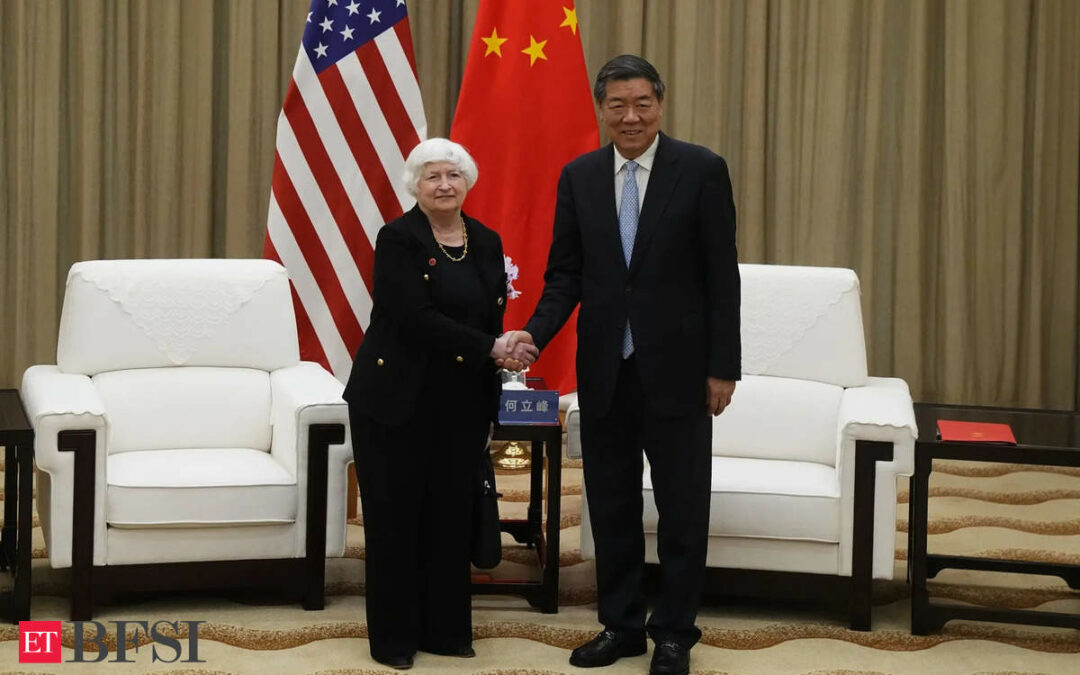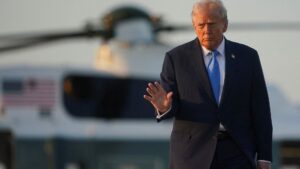BEIJING – The U.S. and China are deepening cooperation on financial stability issues, U.S. Treasury officials said, with two more simulations of financial shocks scheduled after a recent exercise on dealing with the failure of a large bank.
The exercises have been developed by a U.S.-China financial working group formed last year when U.S. Treasury Secretary Janet Yellen first visited China to try to rebuild economic ties. The group, led by representatives of the U.S. Treasury and the People’s Bank of China, last met in Beijing in January.
Yellen was expected to discuss these efforts and other financial stability issues on Monday with PBOC Governor Pan Gongsheng at the central bank’s Beijing headquarters.
The Treasury officials, speaking on condition of anonymity, said the new exercises would take place in April or May.
One would cover operational resilience coordination risks prompted by a major external shock, such as a natural disaster, a cyberattack on a bank, or a new pandemic, while the other would cover insurance system impacts from climate change risks.
There was no immediate comment from the PBOC.
The exercises will help establish lines of communications between U.S. and Chinese regulators and identify areas of potential cross-border contagion and other risks, the U.S. officials said.
The official did not disclose specific results, but said both Chinese and U.S. officials made suggestions on how to better coordinate during episodes of stress.
NO NAMES MENTIONED
“It’s generic in the sense that there was no trigger of concern about a particular bank. There was no name of a bank or anything like that used,” the official said.
Risks from cross-border external shocks came into sharp focus last November, when a ransomware attack on the Industrial and Commercial Bank of China’s (ICBC) U.S. arm disrupted its systems and left some $9 billion worth of trades temporarily unsettled in the U.S. Treasury debt market.
The Treasury has long held such simulations with other countries that have large financial systems, such as Japan, Britain and European countries. The official said the U.S. and China have not had such exercises and consultations so far.
Although direct financial linkages between the U.S. and China are not large enough for China’s economic slowdown to affect U.S. growth, the official said it was important to start to map out risks.
“Countries with large financial systems need to do this with each other. And we simply hadn’t been doing it with China. So now we’ve started in that direction,” the official said.
U.S. Treasury Secretary Janet Yellen on Friday in Guangzhou mentioned the large bank failure exercise as a tangible example of improved economic dialogue between Washington and Beijing. (Reporting by Miral Fahmy)











